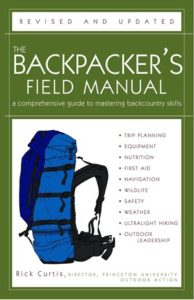I am still getting used to the idea of blogging. A few times a day I think “I should write something on that blog thing” and then it somehow gets lost. Since this is a blog on research, I am happy to report that any lack of blogging is due to my being overwhelmed with research projects.
Last weekend I hosted a research symposium at UNH with the help of the Henry David Thoreau Foundation (HDTF). Fourteen people gathered for three days to talk about research in outdoor orientation programs. We had visits from Mike Gass , who spoke on his view of outdoor orientation research since his first study in 1984. Julie Simpson from the UNH Institutional Review Board also visited and discussed the review process for getting research projects approved.
The conference focused on development of outdoor orientation research projects. After a long discussion and overview of the past research studies, the group focused on what type of projects were of interest to the group. Mike Gass provided a great model to think about research, warning us to attend to the foundational studies we will need completed before a group can build towards more complex questions. For instance, do not set out to research blood doping in the Tour de France before you realize that the Tour de France is a bike race, or before you understand how many people participate, where the stages are held, etc. This was very valuable to us to consider. The Neighborhood Project (gathering an outdoor orientation census) has been part of providing this foundation for research in this area.
One of the questions that came up again and again as we discussed past research studies was the question of selection bias among outdoor orientation programs. Are the students who select to go outdoor orientation programs different from the others students in their class? This is a big validity question in many of the outdoor orientation research studies. It was apparent to the group that some foundational research work was needed here. A group formed to take on the task of looking closely at the selection bias question. This group will be seeking the help of program directors across the country to collect some basic demographic information on the outdoor orientation participants at their school and collect how they compare to rest of the incoming class. The hope is to get a big (BIG) picture of the demographic differences. This is a very interesting project. Although many people believe that outdoor orientation groups are partially successful because they gather already successful students, two studies have reported that the outdoor orientation students are initially behind their peers. I look forward to seeing where this project goes and how it can help other researchers.
A second project involves looking at the impact of outdoor orientation on outdoor orientation leaders. This team spent energy deciding upon some current instruments able to demonstrate some of the potential impact upon leaders. This project is very interested to see differences between the growth leaders may get from attending staff training and the growth from actually leading a trip.
Another project is looking at the impacts of programs upon first-year students understanding of a drug and alcohol workshop by analyzing first-year student essays about attendance on an outdoor orientation program. One of the goals of the outdoor orientation program is to impress upon first-years the risks of drinking and drugging at college. This project hopes to report on the factors important for better programming on this issue.
The last project is the Best Practices Project. I am looking forward to working with a talented and motivated team on this project. We are hoping to interview people who have been involved with outdoor orientation programs that have been shut down. We hope to analyze the reasons why programs may not sustain themselves, and use this as platform to then interview successful programs. Learning from programs that have been canceled may help programs developing to avoid pitfalls. I can’t wait to get started on this project, but first…….
And here is where I am exactly with my research. I am working hard at getting my second manuscript of the summer into a form where I can collect feedback from some colleagues. I am far from a gifted or talented writer–as this blog may expose–so I have been putting in long hours this summer working on my writing. I feel as though I have turned myself inside out, but fortunately I have seen some improvements. I look forward to reporting to those who struggle with their writing on how I became a writing success, but for now I just try to not get bitter about not having a vacation.
So that is the update on the research blog at present. I will write back soon with some information the IRB experience. That is tomorrow’s project once I give this manuscript my final read through before sending it out to friends. Thankful for such friends who will read your work.
Brent


